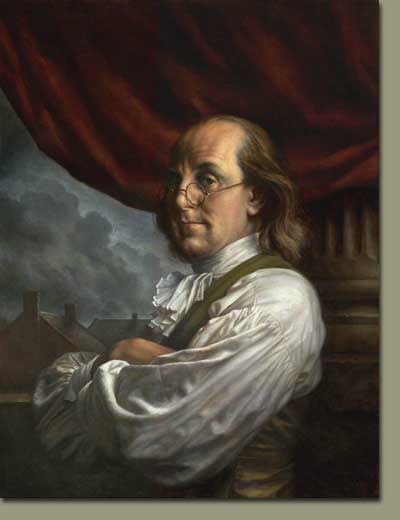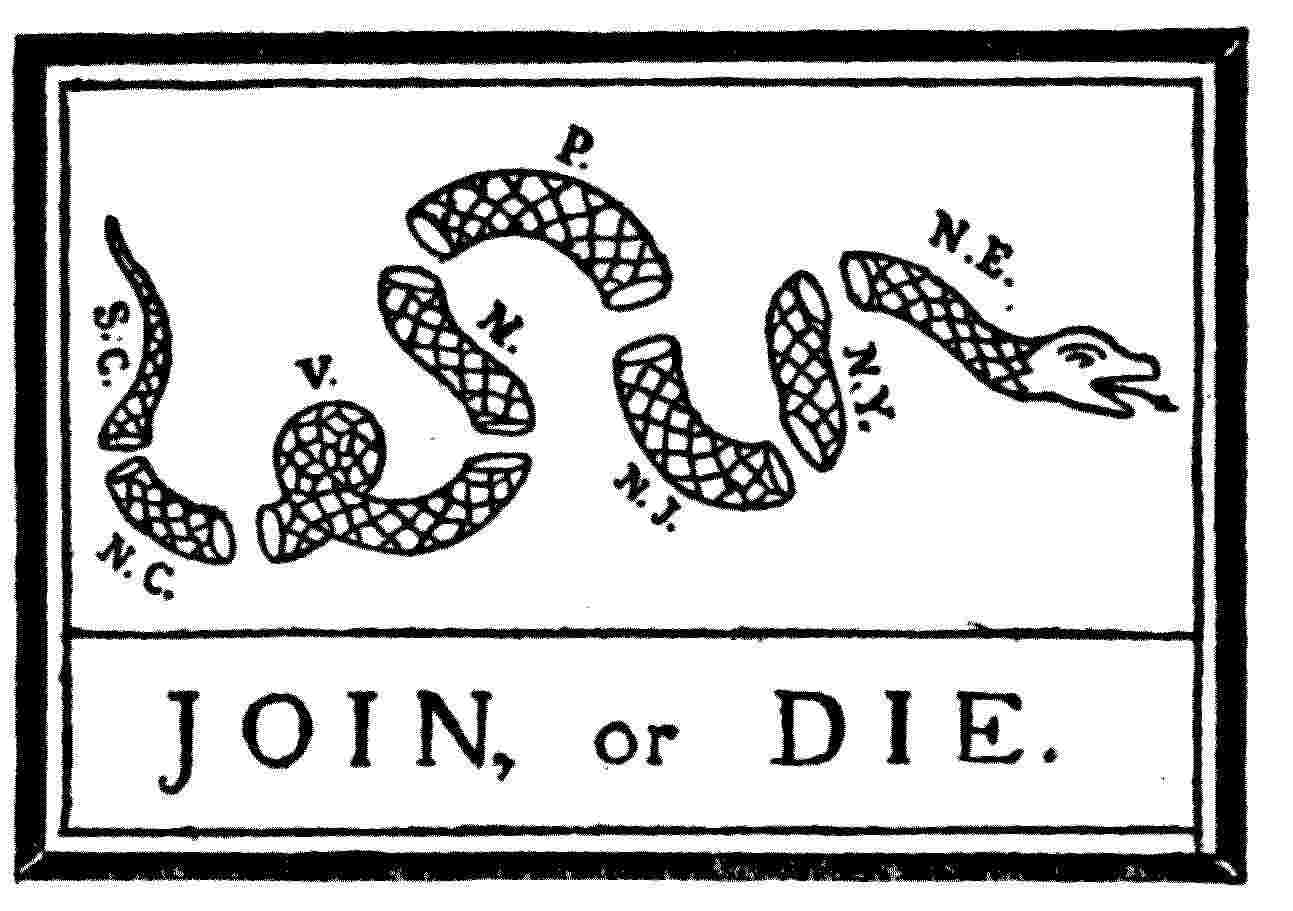Benjamin Franklin was, no doubt, the most cosmopolitan
member of the Convention, the first American of international renown, a member
of the Royal Society, many colonies’ former agent in England and the former
U.S. minister to France, where he played a critical role in treaty negotiations
and mingled with the top literatti (in England as well). Franklin had been urging the colonies to
“Join or Die” since the 1750’s, so he would seem a natural nationalist, who
would urge his fellow delegates to look beyond their local interests to the
good of the whole. And no doubt this was
his natural inclination, but instead his statesmanship took the form of
resisting that natural inclination and working, instead, to reassure the small
states and reach the compromise that save the Constitution.
He indicated his natural inclination, saying he would prefer to see each
representative consider himself a representative of the whole rather than an
agent for a particular state, and it would not matter how representation was
apportioned. Since this was not realistic, he favored
representation in proportion to population and voting as individuals, rather
than by states. He did not see this as
threatening to swallow up the small states any more than Scotland was swallowed
up by a union with England. In the
interest of equalizing states, he even offered to give up a part of
Pennsylvania to Delaware and New Jersey, but, he said, this would not be a good
long-term solution since populations are constantly shifting, which would
require state boundaries to be constantly shifting as well to maintain equality.
As a
compromise, he proposed for the smallest state to volunteer to provide whatever
quota of money or force it could afford and have all others agree to furnish an
equal portion. Congress would then
consisted of an equal number of representatives from each states, who would
vote as individuals, rather than by states.
If more supplies were required, Congress could make up the difference by
requesting voluntary contributions from the larger and more powerful states,
which he believed they would be willing to furnish. He apparently considered equal representation
by states as just so long as each state was financing the system equally. What he considered most unjust was the system
of voting by states. Under that system,
the majority of each state’s delegation, in effect, cast that state’s
vote. Since larger states generally had
larger delegations than small ones, it would be possible for a measure favored
by a bare majority of the seven smaller states’ delegations to pass, even
though unanimously opposed by all the large states, and a distinct minority of
members of the legislature could prevail over the majority.
This
proposal was made when the Convention was debating whether representation would
be by population or by states in either house, or even whether to have
two houses at all. Later, when it became
apparent that there would be two houses and that the lower house would be
proportional to population, he proposed a similar system for the Senate:
If a proportional representation takes place, the small States contend that their liberties will be in danger. If an equality of votes is to be put in its place, the large States say their money will be in danger. When a broad table is to be made, and the edges of the plank do not fit, the artist takes a little from both, and makes a good joint.
He proposed instead to have an equal number of
representatives per state in the Senate, each voting as individuals. In all matter involving the sovereignty of
individual states or the overall powers of the central government, each state
would have and equal vote. In all
matters related to spending, states would have a vote in proportion to their contribution
to the treasury. In fact,
however, the large states never said anything to indicate that they were
resisting equality in the Senate for fear that it would tax then excessively;
their arguments were based on the principle that every person should be
equally represented and the practical argument that unless
representation was in proportion to a state’s actual importance, the government
would be hopelessly weak.
Franklin
served on the committee that first proposed the Great Compromise, to have
states equally represented in the Senate in exchange for giving the House sole
authority to originate money bills. This
compromise was apparently his proposal, and he made clear that
he considered these two conditions dependent on each other and would not
support them separately.
His main other contributions on centralization were to propose a federal
authority to cut canals, and, at the end, to urge everyone to
support the Constitution, despite having some doubts abouts it because a stronger
government was clearly needed (9/17/87, pp. 653-654). As the delegates proceeded to sign the
Constitution, Benjamin Franklin gave the most famous statement of then
Convention. George Washington, presiding
over the meeting, had been sitting in a chair with a sun painted on
it:
 |
| Washington's Chair |
I have, said he, often and often in the course of the Session, and the viscisitudes of my hopes and fears as to its issue, looked at that behind the President without being able to tell whenter it was rising or setting; But now at length I have the hapiness to know that it is a rising and not a setting sun.


No comments:
Post a Comment